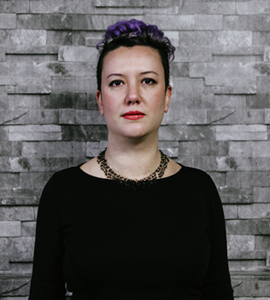July 2020, 24 Hours Newspaper (24 Saat Gazetesi)
This piece is the translation of the interview by Mustafa Süzen from 24 Saat Gazetesi (24 Hours Newspaper) with Berna Akkızal. You can read the original version from here.
CSSA’s Director Akkızal: Student Rights Violations During Online Courses and Exams
Berna Akkızal, President of the Civic Space Studies Association, stated that they have been working on the right to expression, organization and peaceful demonstration through social media campaigns, litigation, media observation and reporting since 2018, and made an assessment of the rights violations experienced by students before and during the COVID-19 pandemic:
“Some university administrations decided to take video and audio recording of students to prevent cheating during courses and exams. Such a practice was a decision that both restricted academic freedom of expression and violated personal rights. It is yet unclear how imprisoned students will participate in online lessons and exams, the precautions taken and what kind of preparations are made. “
“Violation of personal rights and financial problems are at the forefront”
Akkızal stated that different problems were experienced in terms of freedom of expression, action and association before and under the pandemic at universities in Turkey. She stated that problems such as not allowing students to establish their own clubs, investigations opened for those using the right to protest, and restriction of academic freedom of expression were experienced mostly pre-pandemic, whereas inequality of opportunity in education, violation of personal rights and financial problems became much more exasperated during the pandemic:
“There are positive and negative decisions in terms of student rights during the pandemic. We welcomed the decision to conduct the exams online rather than face-to-face. Nevertheless, we identified many rights violations regarding online listening and exams during this process. The first thing that caught our attention was that not all students had the necessary infrastructure to attend online courses. Students definitely needed a stable internet connection and a computer during their stay at home to participate. This was not a condition that every student could financially afford.”
“We can see that being in solidarity and making a voice together works.”
Commenting on how during the pandemic period, students have made their voices heard and protested through social media, Akkızal continued as follows:
“Many online campaigns have moved up the agenda. In some of them, the students made gains. In these actions, the students objected to the audio and video recording during the exams, the price increases made by the foundation universities, and the failure of online exam systems to work properly. We can say that being in solidarity and raising voices together works. Many university administrations took a step back and students regained access to their rights. The autonomy of universities should be ensured under all conditions. This is the first condition for the campus as a civic space to be the place where scientific critical thinking is produced. Students should have the right to assemble and protest as they wish.”

